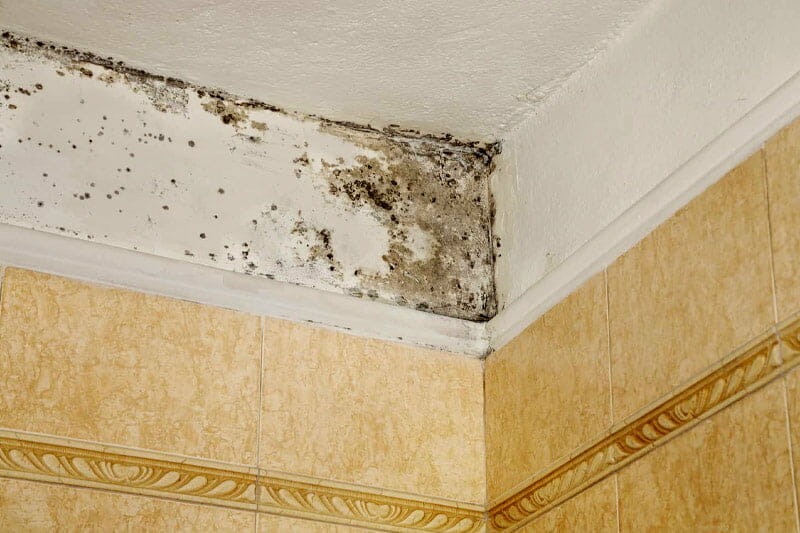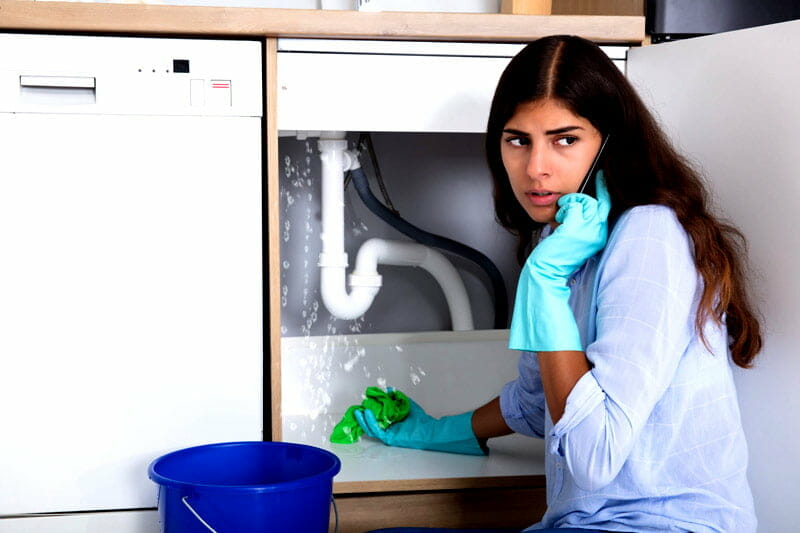Finding mold in the rental property is not fun at all. As soon as the mold appears, you should react as soon as possible.
According to Kansas State law (Kan. Stat. Ann. § 58-2559) if the landlord doesn’t provide habitable housing under the local building code and state housing codes, a court may conclude that the tenant has been “constructively evicted”.
This means that the landlord by supplying unlivable housing has for all practical purposes “evicted” the tenant. After this, the tenant has no further responsibility for the rent.

Mold-related disclosure requirements in Kansas State
Although there is no required mold disclosure form in Kansas State, the law does state that a landlord is required to maintain the property in a safe and habitable condition that complies with all local health and building codes.
Landlord’s responsibility to keep the apartment habitable
There are a few reasonable actions that must be undertaken by the landlord in order to keep the apartment in habitable condition:
- Clean and safe common areas with available thrash disposal;
- Working utility connections;
- All plumbing, heating, electrical, ventilation, water, and air-conditioning systems in the home;
- Safe and working appliances if offered with a rental.
What type of repairs is the tenant responsible for in Kansas State?
The statute about the duties of tenants, 58-2555, rules that a tenant is required to maintain their rental unit in a clean and safe condition. All plumbing and electrical appliances must be reasonably used and kept as clean as possible. Tenants are also responsible for any damages done to the premises.

Tenant rights in Kansas State due to mold
It is very important to document the mold problem when mold appears. Few more things you should do when mold has taken over the apartment:
- Take pictures of visible mold growth on walls and floors. A picture can be worth a thousand words if you need to prove that there is mold in your apartment;
- If you or your landlord run any mold testing document the results;
- Check for prior traces of mold in the apartment and contact previous renters and find out if they have had mold problems;
- Find legal assistance if you want to get out of your lease.
Sometimes tenants are free to break their lease because of mold problems if they can show strong proof that the mold poses an “imminent threat” to health.
On the other hand, if a tenant decides to stay in the lease it is up to the landlord to resolve the problem. The landlord must hire experts and resolve all moisture issues that may have caused the existing mold.
Resource: See all state mold laws
How long does the landlord have to fix the mold problem in Kansas State?
As soon as mold appears it needs to be addressed as soon as possible. The landlord has to act promptly when a written notice has been received.
Kansas law states that a landlord must make repairs in a reasonable amount of time, but doesn’t give a specific time frame. A tenant can give a 30-day written notice to quit their lease if the needed repairs are not made in 14 days of the landlord receiving such a notice.
Tenants can also move out without being responsible for future rent if the landlord does not perform the needed repairs.
When is the termination of the lease agreement justified in Kansas State?
In the following situations, you can move out of the apartment and break the lease before the rental agreement ends without penalty:
- Starting active military duty;
- The rental unit is unsafe;
- The landlord harasses or violates privacy rights.
Tenants relocation due to mold in Kansas State
The general rule is that the tenant needs to be relocated if the mold is severe enough to cause the apartment to be uninhabitable. If this is the case, landlords are usually required to remediate mold at their expense, unless the mold problem is caused by the tenant.
Who covers the costs of relocation will depend on the lease terms and the laws of the applicable jurisdiction.












